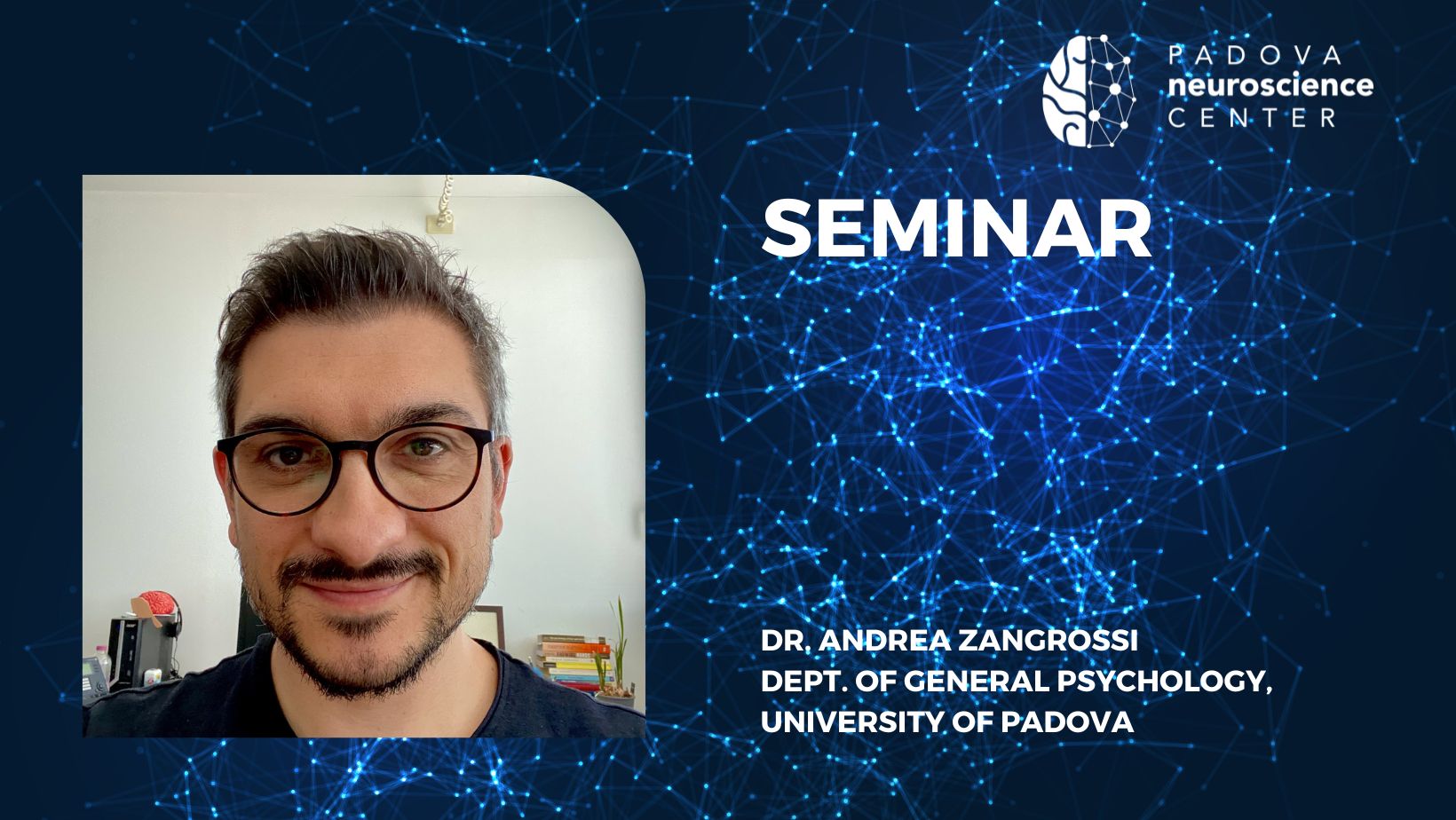by Dr. Andrea Zangrossi, Dept. of General Psychology, University of Padova
When: July 11, 2024, at 3:00 pm
Where: Sala Seminari VIMM (Fondazione per la Ricerca Biomedica Avanzata Onlus, Via Orus 2, Padova)
Abstract: A rule of thumb in computer science is that if you give a computer the same input, you will always get the same output. However, this does not hold true for humans: providing the same sensory input can lead to a wide range of different behavioral and brain responses. How is that possible? One explanation is that brain activity and behavior are only partially grounded in the properties of the sensory input, and that behavior is strongly influenced by the brain’s intrinsic dynamics. These endogenous dynamics are thought to represent stable features of the individual as well as ongoing mental states. A logical consequence is that behavioral dynamics should convey information about the underlying individual brain/mental states.
In this seminar, I will focus on a specific domain of behavior, namely oculomotor behavior – how we scan the surrounding environment through our eye movements. Specifically, I will explore how oculomotor behavior can provide insights into both stable interindividual differences, neurodegenerative processes, and covert cognitive processing.
Indeed, previous studies have shown that eye movements can reveal individual traits and brain properties that are stable over time. Moreover, studying oculomotor behavior has important clinical applications, as it can represent a non-invasive approach for identifying novel biomarkers of dementia. Finally, the nature of eye-movement dynamics makes them suitable for studying ongoing cognitive processing and revealing covert mental states, with potential applications in forensic neuroscience.


